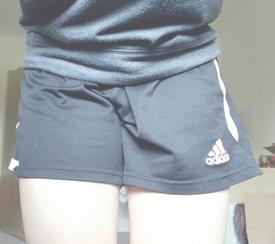60ml vs 61ml

AsaThorsWoman
Posts: 2,303 Member
Every morning when I'm trying to weigh my half and half on my digital scale, I find it almost impossible to get my 60ml preferred amount on the dot. It's always either 59ml or 61ml!
Does this difference really matter? I mean, I'm just posting this because I want someone to tell me it doesn't matter at all.
Some times I feel the same way with grams and other foods.
For instance, sometimes I get 31 grams of sour cream instead of my serving size 30 grams.
Can I just log the even amount?
Thanks!
:smooched:
Does this difference really matter? I mean, I'm just posting this because I want someone to tell me it doesn't matter at all.
Some times I feel the same way with grams and other foods.
For instance, sometimes I get 31 grams of sour cream instead of my serving size 30 grams.
Can I just log the even amount?
Thanks!
:smooched:
0
Replies
-
I don't mind fiddling in the evening when I have time, but every second in the morning is a precious gift.
I can't spend too many pouring half and half from my mug to the jug and back again!0 -
I would have to say, no it doesn't matter. Although I do know where you are coming from - my electronic scales only measure in 2g increments which frustrates me slightly particularly if I am weighing fats or something. I even contemplated buying new scales, but then had a talk with myself that that was maybe going a bit too far - I have far better things to be spending £30 on at the moment.0
-
liquids don't go on a food scale you should be using measuring spoons etc.0
-
If being 1ml or 1mg off was horrible we'd all be dead by now. You're good.
I agree, in the morning, I'm half awake. I don't even use the scale, I pour it in my coffee and move on :-)0 -
If 1ml is going to affect your weightloss you need to take a step back and look at what you're doing0
-
^^ yesliquids don't go on a food scale you should be using measuring spoons etc.
And don't worry about 1ml or 1g~ Sometimes you'll be over and sometimes you'll be under, it will even out 0
0 -
holy crap no! It's fine!0
-
^^ yesliquids don't go on a food scale you should be using measuring spoons etc.
And don't worry about 1ml or 1g~ Sometimes you'll be over and sometimes you'll be under, it will even out
Why is it that the liquid goes into the measuring spoon/cup but the solids get the scale?0 -
^^ yesliquids don't go on a food scale you should be using measuring spoons etc.
And don't worry about 1ml or 1g~ Sometimes you'll be over and sometimes you'll be under, it will even out
Why is it that the liquid goes into the measuring spoon/cup but the solids get the scale?
Just stumbled across this thread and I'm wondering the same thing as the last question. Why can't you measure liquids on a digital scale? Is it because of accuracy? I have accidentally overfilled the measuring spoon too many times with olive oil, and at 130kcals per Tbsp I'd rather be accurate with that one!0 -
It's because 1ml doesn't always equal 1g, as different liquids can have different weights (and also note that fl oz are a measure of volume, not weight.)
Measuring cups and spoons are calibrated to be used with liquids (filling the space completely), not solids (which can be packed etc.)
Weights are more accurate for solid foods for that reason.0 -
1cc of fat isn't even that much...I'd not even worry about it and just round to whatever made you happy.0
-
It's because 1ml doesn't always equal 1g, as different liquids can have different weights (and also note that fl oz are a measure of volume, not weight.)
Measuring cups and spoons are calibrated to be used with liquids (filling the space completely), not solids (which can be packed etc.)
Weights are more accurate for solid foods for that reason.
Super helpful! Thank you!!0 -
i use a tablespoon to measure out my morning creamer.
i wouldnt sweat it too much.0 -
Thus the inherent logic in eating back only 80% (or fewer) of your exercise calories - it gives you a little headroom to accommodate calorie (burned or consumed) and/or measuring errors.
And as other posters have indicated, statistically measuring errors tend to even out over the long term.
In other words: no worries! 0
0 -
liquids don't go on a food scale you should be using measuring spoons etc.
There are exceptions. My almond milk carton has both ounces and grams listed on the label, so when I'm adding it to my smoothie mix with my already weighed fruits, I use the scale and weigh it by grams.0 -
^^ yesliquids don't go on a food scale you should be using measuring spoons etc.
And don't worry about 1ml or 1g~ Sometimes you'll be over and sometimes you'll be under, it will even out
Why is it that the liquid goes into the measuring spoon/cup but the solids get the scale?
Because only water weighs true to 1 g = 1 mL. Always use measuring spoons for liquids. 0
0 -
when you enter in the food/liquids or whatever can you pick the option to imput your stuff per ML or per G? Some foods I know have to option to enter in per ML or G you just have to search a little more to find one that matches.0
-
How are you weighing ml on a scale? A ml is a measure of volume, not weight. Water weighs 1gm per ml, but the same isn't true for other (denser) liquids.0
-
How are you weighing ml on a scale? A ml is a measure of volume, not weight. Water weighs 1gm per ml, but the same isn't true for other (denser) liquids.
specific gravity of milk is an average of 1.032 (1.032kg per 1 liter)
so 1.032g per ml not much of a difference for milk. Not like we are talking mercury or some liquid like that.0 -
My food scale has a ml setting, but I don't know about any science behind it.
I have started measuring my half and half with the tablespoon.
I've also cut down from 6 tablespoons to 4 in the morning coffee, for the sake of saving calories.
Baby steps.0 -
How are you weighing ml on a scale? A ml is a measure of volume, not weight. Water weighs 1gm per ml, but the same isn't true for other (denser) liquids.
specific gravity of milk is an average of 1.032 (1.032kg per 1 liter)
so 1.032g per ml not much of a difference for milk. Not like we are talking mercury or some liquid like that.
But wouldn't it just make sense to measure a ml as a ml? Milk may not be much different but half and half is denser, as are many other liquids. I just don't understand why you wouldn't just measure mls in mls.
ETA: Weird that a scale has a ml setting - how would it know if you're measuring water or heavy cream? gravy?0
This discussion has been closed.
Categories
- All Categories
- 1.4M Health, Wellness and Goals
- 398.2K Introduce Yourself
- 44.7K Getting Started
- 261K Health and Weight Loss
- 176.4K Food and Nutrition
- 47.7K Recipes
- 233K Fitness and Exercise
- 462 Sleep, Mindfulness and Overall Wellness
- 6.5K Goal: Maintaining Weight
- 8.7K Goal: Gaining Weight and Body Building
- 153.5K Motivation and Support
- 8.4K Challenges
- 1.4K Debate Club
- 96.5K Chit-Chat
- 2.6K Fun and Games
- 4.7K MyFitnessPal Information
- 17 News and Announcements
- 21 MyFitnessPal Academy
- 1.5K Feature Suggestions and Ideas
- 3.2K MyFitnessPal Tech Support Questions














